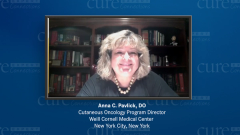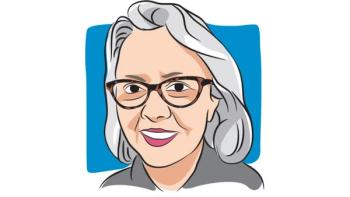
Multidisciplinary Management of laBCC
A discussion about multidisciplinary management of locally advanced basal cell carcinoma (laBCC) and how dermatologists and medical oncologists collaborate within the care of a patient.
Anna C. Pavlick, D.O.: My dermatology colleagues are clearly the first line of defense in the treatment of all skin cancers. We depend very heavily on our dermatologists to do thorough skin examinations and assess patients’ lesions. If a lesion looks suspicious, they’ll go ahead and biopsy it. Once a pathology report is rendered, and it looks like this is a lesion that may either be very large or require more care than something that a dermatologist will manage—that’s when a multidisciplinary team is called on for us to weigh in, to give our opinions on how to best manage this for the patient with the best outcome and the least amount of toxicity.
Patients who routinely have early stage basal cell carcinoma are certainly never going to get referred to a medical oncologist because their cancer is essentially treated and cured with an excision done by the dermatologist. When a basal cell carcinoma becomes larger, invades a lymph node, or is considered to be difficult to remove based on multiple factors, that’s when the multidisciplinary team will assess that patient. As a medical oncologist, I don’t do the resections. My dermatology colleagues or my surgeons do that. Patients get referred to me for medical therapy of their cancers when it’s deemed that surgery may not be appropriate at this time for that patient, or surgery may be too disfiguring, depending upon where that lesion is. Patients will look for medical alternatives to manage their locally advanced or metastatic basal cell carcinoma.
Transcript edited for clarity.





